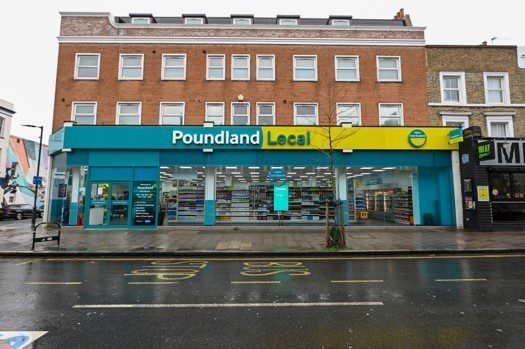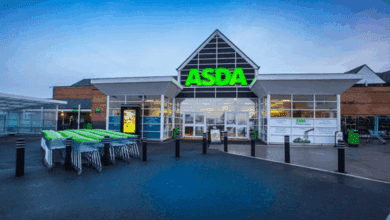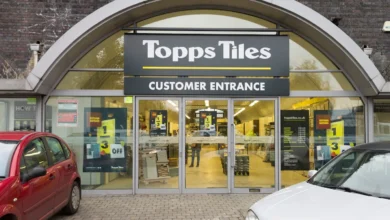What does the future hold for Poundland?
Following the approval of its restructuring plan in the High Court last week, Retail Sector analyses the uncertainty surrounding Poundland and if it will be able to survive following the decision

Register to get 1 free article
Reveal the article below by registering for our email newsletter.
Want unlimited access? View Plans
Already have an account? Sign in
Last week Poundland was saved from collapse just days before the company ran out of money after its restructuring plan was approved by a High Court. Barristers told a hearing that it would fall into administration by Friday and could run out of money by 7 September if the plan was not approved. It comes after the company was sold to private equity Gordon Brothers for £1 back in June. Despite the reprieve it remains to be seen whether Poundland has a long-term future on the British high street or if the decision will only delay the collapse of the company.
How did we get here?
The current struggles of the brand are in stark contrast to where it was towards the end of 2023. At this time it capitalised on the collapse of Wilko by acquiring up to 71 of its stores. By the end of December that year the company had opened 87 new stores in 70 days, with plans to refurbish around 150 stores in the coming months, as well as open more former Wilko stores.
However, come September 2024 the retailer began to see a downturn in fortunes, as its like-for-like revenues fell 3.1% in the fourth quarter of that financial year owing to supply chain disruptions. Following this, its parent company Pepco Group reported a £675m impairment charge on its UK subsidiary Poundland, as a result of “a significant decline in performance in FY24 and weaker outlook for profitability amid increasing competition and cost challenges”.
The brand reported a net loss of £548m for the period, driven by the impairment charge and its poor performance was largely attributed to increased competition, rising costs and particular challenges in its clothing and general merchandise ranges after transitioning to Pepco-sourced products.
As a result of this, it began to emerge that Pepco was considering a sale of the company. Following the sale 13 stores initially closed, with 59 closures planned by the beginning of September.
Sue Daun, executive creative director at Interbrand, believes that Poundland’s struggles began as it became increasingly overtaken by its competitors. Its traditional appeal has faded as discounters, supermarkets, and new entrants like Aldi, Lidl, Flying Tiger, and Temu have redefined value – delivering quality own-label products, inspiration through social, and engaging retail experiences,” she says.
What does the court decision entail?
In short, it means Poundland can proceed with its restructuring plan, which will include closing stores and renegotiating rents with various landlords. Benn Richards, partner, Restructuring and Insolvency at Michelmores LLP explains that restructuring plans were introduced as part of the government’s emergency legislative measures during the Covid-pandemic and are a way for a company to “cram down” “out of the money” creditors i.e. those whose debt sits below the value of the company and its assets receive very little, if anything, in the restructuring. He thinks that Poundland will be seeking big reductions in rent as a result of the ruling.
Nick Stockley, partner at Mayo Wynne Baxter, believes that the fact the plan was unopposed will have helped the court make the decision in favour of Poundland. Daun states that Poundland secured restructuring approval by demonstrating the “urgent risk of collapse, outlining concrete cost-cutting measures, and presenting a credible plan for fresh investment and debt relief”.
What now for the company?
Barring a significant change in direction, the consensus seems to be that the court decision has merely postponed the collapse of the company. “If Poundland was going to run out of cash on 7 September 2025, there appears to be an inherent problem with the business rather than a cashflow issue. Poundland’s counsel at the hearing said as much.
“It will need to do more with the business than make superficial changes and short-term fixes, the company needs a significant revamp, a possible rebrand and an effective business overhaul if it wants to avoid the fate of Claire’s Accessories,” Stockley explains.
Daun echoes this viewpoint, believing that while the court has bought the company time, underlying challenges remain. “Today’s shoppers want more than just low prices- they expect value that feels ‘smart’ and relevant to their lifestyles. While the court’s decision has delayed administration, the competitive landscape has moved on. If Poundland is to reclaim a place in the UK retail market, a bold leap in brand proposition and customer experience is now essential, she says.
To save itself, Bajaj believes that Poundland must focus on rebuilding its value proposition.. “Emphasising the £1 price point, highlighting seasonal ranges, and delivering clear value cues are the most effective ways to differentiate in a crowded discount market. These categories define the brand’s equity and must be consistently available to retain shopper loyalty.
“Execution discipline is the deciding factor. Availability on top-selling lines will determine how quickly customer confidence returns. Gross margin after markdowns has to be tightly managed to avoid eroding the model. Cash discipline depends on rebuilding supplier trust and negotiating terms that support working capital. Without sharper agreements and reliable fulfilment, liquidity will remain under pressure,” he says.
He also emphasises the importance of operational visibility stating that the stores which continue to trade must stay easy to find through digital listings and local search in order for convenience and price to work hand in hand.
“Marketing should remain close to transactions, with clear local offers rather than broad campaigns. The plan secures a future path, but only if operational delivery proves that Poundland can trade profitably under tighter discipline. The near-term signal will be whether suppliers extend credit on sharper terms,” he concludes.
The next few weeks and months are vital for the future of Poundland. There is a path to survival for the beleaguered company but it is a path fraught with danger and a path which many believe only ends in failure.







